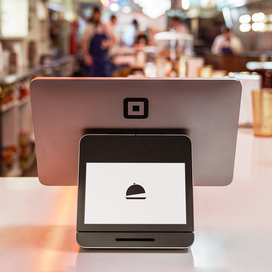Table of contents
This article is for educational purposes and does not constitute legal, financial, or tax advice. For specific advice applicable to your business, please contact a professional.
Worker-owned businesses or cooperatives have been a long-time part of food businesses like bakeries, restaurants, grocery stores, and bars. You might even be shopping or dining at a business without realizing they’re employing this business model. Supermarket chain Publix, for example, has been operating as an employee-owned business since 1945 and is the largest employee-owned grocery store chain with employees currently owning about 80% of the company.
According to a 2020 National Center of Employee Ownership (NCEO) study focused on employee-owned food businesses, these business models allowed employers to offer better health benefits and retirement security, to better retain employees, and to boost business profits. Let’s dive into what this business model entails and if it might be a good solution for your restaurant.
What is a worker-owned business model?
A worker-owned or employee-owned business model is one where no one person owns the majority of the shares of the business. In fact, typically a worker-owned cooperative is owned and governed completely by the employees who work there. There are several employee ownership-based business models that might be referred to as an employee stock ownership plan (ESOP), a worker-owned cooperative, or an employee ownership trust (EOT). Worker-owned cooperatives or employee ownership trusts can be businesses of any size while ESOPs are typically larger.
Employee ownership structures can optimize business operations
Worker-owned businesses are not unique to one area of the country; east coast and west coast restaurants (and everywhere in between) have a history of adopting this business model. According to Certified-Employee Owned, the only national accreditation program for employee-owned businesses, more than 6,000 companies currently meet a 30% threshold of employee ownership.
A 2018 Harvard Business Review study found that employee-owned businesses are more durable and resilient during economic downturns, boosting profits by as much as 14%. A worker-owned business or employee-owned business model can help you optimize your business operations in a range of ways:
- Promote job security by empowering employees.
- Offer living wages and benefits to employees by offering more transparency for both . Since employees are a part of this model, they can impact the way the pay structure is set up.
- Increase employee engagement, which can positively impact business performance.
- Increase employee retention by having team members be more invested in every aspect of the business.
- Support retirement and succession planning.
In addition to some of the benefits above, worker-owned structures can help extend the life of a business by giving employees more access to ownership and making them more productive, which ultimately helps the business grow faster.
A draw for restaurants transitioning to this model over a traditional business model is giving more control to the employees who are working day-to-day, ensuring a memorable experience for diners. With more inclusive decision-making, employee-owners can share ideas more transparently, which creates the potential for a culture of experimentation and innovation. Not only might this help your restaurant adopt culinary and technology trends more quickly, but it can also empower employees to feel a shared sense of responsibility.
Examples of worker-owned businesses
The Local Butcher Shop: The Local Butcher Shop is a sustainable meat shop based in Berkeley, California. After over ten years of building the business, they switched to a worker ownership model, selling the business to their dedicated employees.
Reem’s: Owner Reem Assil has always been interested in a worker-owned business model and made the transition during the pandemic. Reem’s also moved away from tipping and placed a 20% service charge in its stead to supplement worker wages (based on hours worked) and offer worker benefits.
Trident Booksellers and Cafe: Trident Booksellers and Cafe is a Boulder, Colorado-based bookstore and cafe. The business was open for 40 years, owned by four partners, before selling to employees during the pandemic. Rather than looking for an outside buyer, the owners were able to pass on the business to longtime employees who knew the business and the customers well.
Understory: This restaurant and commissary kitchen is based in Oakland, California. The business collective won the 2022 James Beard Emerging Leadership Award for putting equity and diversity at the forefront.
There is growing recognition and interest in the restaurant industry for employee-owned business models. Employee ownership can bring a range of benefits to employees and your business’s bottom line while improving customer satisfaction. By setting up a system in which the employees are inherently more invested in overall success of the business — as well as the day-to-day minutiae — your business could start to alleviate consistent staffing concerns while deepening customer relationships through more engaged and motivated employees.
![]()














